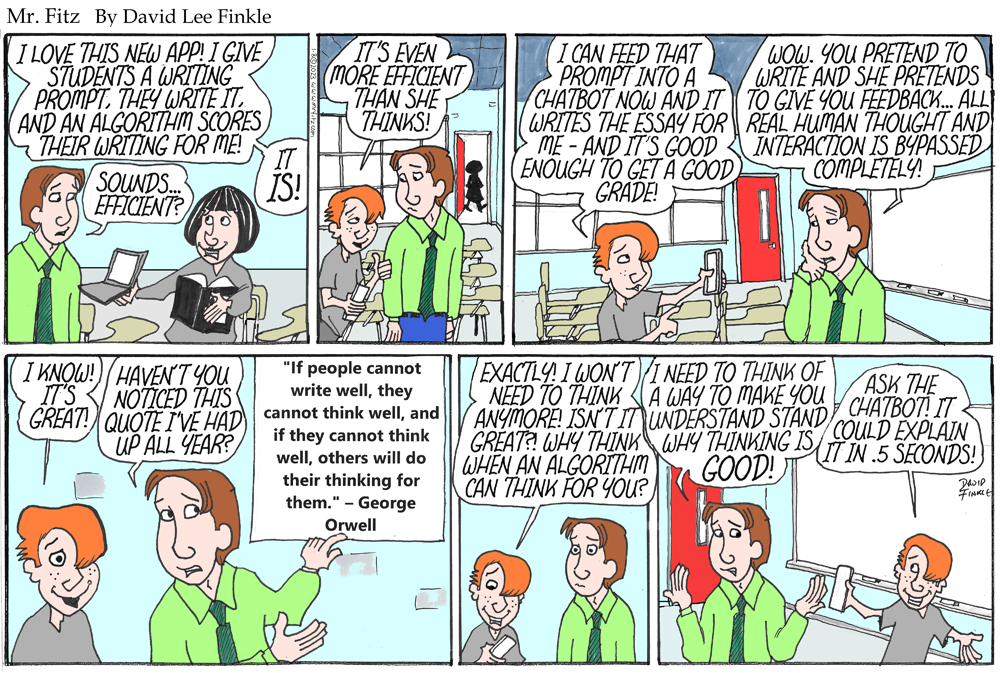Being a Literacy Teacher is Counter-Cultural Right Now
Posted
I haven’t posted anything new in this space in a while. Maybe it’s been the fact that I have a total of 190 students this year, which is exhausting. Maybe crossing the line past 30 years of teaching – I just received my 30-year pin from my district today – has left me a bit reflective, and a bit adrift, less sure of what comes next. Maybe it’s the fact that just when I thought teaching couldn’t get too much more stressful – it has.
Especially for literacy teachers.
It seems that everyone agrees in theory that literacy matters. We test it incessantly. We keep trying out new literacy standards to improve instruction (and keep standardized testing relevant). I’m on my fifth set of standards in my career: Sunshine State Standards, Next Generation Sunshine State Standards, Common Core State Standards, Florida Standards (Common Core in disguise), and now the Florida B.E.S.T. Standards.
Yet with each set of standards the system’s vision shrinks. We used to say students should have a reading habit in school that would make them lifelong readers. I have tried to encourage my students to be lifelong readers for my whole career. As soon as I had my own classroom, I had a classroom library, largely funded out of my own pocket. My wife has also had one. Before the pandemic we made two or three trips to the Scholastic Book Warehouse to purchase discount books for our classrooms.
Now many teachers in Florida are being told to hide their classroom libraries – or are voluntarily hiding them out of fear. We have moved from some books being banned, which was bad enough, to all books being banned unless they support our current standards and have been approved by the state. We no longer value literacy. We value narrow, test-able reading skills. We value narrow thinking. We apparently no longer value literacy, freedom of expression, and freedom to read.
I have spent my whole career trying to encourage the love of reading. Apparently that love no longer matters to a lot of people. In fact, a lot of people who should know better seem to hate books. I love books. I have not put my classroom library away. And I will be teaching Fahrenheit 451 this spring.
Our vision of writing has shrunk over time as well. When I began teaching, I was part of a “writing enhancement” program that encouraged students to write about what mattered to them in a variety of genres. We were full-on Nancy Atwell Writing Workshop. We weren’t judged by writing tests, but by portfolio checks of student writing. The people who looked at the portfolios were looking for variety of writing, student choice, evidence of process, and evidence of publication.
As writing standards and writing tests have taken over, our definition of writing has narrowed and narrowed until writing is now stringing quotes together to please an algorithmic scoring program. The irony of this writing “rigor” is that we have taught our students to write like robots, and now a robot can write for them. The narrow writing we ask our students to write is perfect fodder for the ChatBot GPT. When students ask us why they need to know how to write if the ChatBot can do it for them, how will we answer?

It’s a little difficult to feel supported in the teaching of reading when your own state is banning books, even throwing the word “felony” around in relation to giving students books. It’s a little difficult to tell my students that writing is a valuable skill when most of the writing they do in school is meaningless and easily done by a Bot.
But I still think reading matters to who we are as human beings. To quote Terrence, “Homo sum, humani nihil a me alienum puto“, or “I am human, and I think nothing human is alien to me.” Reading is not about passing a test. It is not about reading in a limited range of approved texts so that we only think what the people in charge want us to think. It is about life.
I still think writing is a human act. It helps us know ourselves. It helps us reach out to other people. It helps us understand our own feelings and empathize with other people’s. It helps us make sense of the world. A ChatBot can’t do any of those things. It can string words together to create writing that doesn’t really matter.
I feel profoundly counter-cultural right now. I value literacy not because of college and careers and future incomes, but because I value human freedom, human thought, and the quality of human life.
So I’ll keep teaching for a while longer. I’ve always taught against the current. But the current I’m swimming against has gotten a lot stronger.